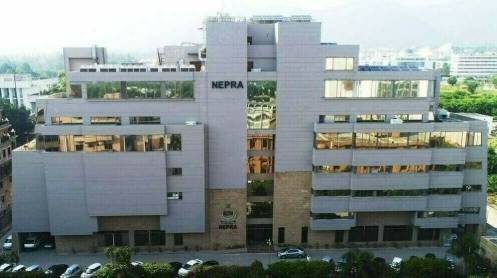ISLAMABAD: In a development that may herald some financial relief for power consumers, the National Electric Power Regulatory Authority (Nepra) has been directed to re-evaluate its previous decisions related to fuel price adjustments (FPA) and quarterly tariff adjustments (QTA).
The directive, issued by a tribunal and the Islamabad High Court, pertains to 20 decisions taken by the Nepra since March 2021, which have been described as “impugned”.
These decisions have a direct impact on the state-run power distribution companies (DISCOs). Notably, K-Electric, the power distributor for Karachi, is excluded from this review process, a senior official of Nepra confirmed to The News on Tuesday. “If Nepra decides to revise these decisions downward, the state-run distribution companies (Discos) will be required to refund the excess amounts collected from consumers under the previous tariff settings,” he said.
In compliance with the tribunal and High Court’s orders, Nepra is slated to conduct a public hearing on September 3. This directive to the power regulator authority comes in the wake of rulings from both the Nepra’s Appellate Tribunal and Islamabad High Court, compelling the regulatory body to reconsider its stance on numerous adjustments dating back to 2021.
The tribunal, on February 13, 2024, partially upheld appeals against the Nepra’s decisions, which had previously raised power tariffs at various points over the last few years. These decisions, affecting dates as far back as March 9, 2021, through several in 2022 and 2023, had sparked discontent among the consumers.
Notably, the tribunal identified that the Nepra’s adjustments might not have sufficiently taken into account the evolving economic conditions and consumers’ ability to absorb further costs.
Following the tribunal’s decision, consumer appeals were taken to the Islamabad High Court. However, the High Court dismissed these appeals on June 26, 2024, upholding the tribunal’s judgment. This outcome effectively compels Nepra to take another look at its tariff adjustment decisions. The hearing is aimed at offering a platform for stakeholders to express their concerns and objections. The participants are encouraged to submit written or oral statements, ensuring a comprehensive review process.
The hearing will serve as an opportunity for Nepra to present its case while addressing the concerns raised by consumers and other stakeholders. The Nepra’s approach will be critical, given the tribunal’s emphasis on the need for a “meaningful right of hearing” for consumers. The regulatory body must now navigate a delicate balance between maintaining the financial viability of power suppliers and alleviating the burden on consumers.
This hearing could have far-reaching implications for Pakistan’s energy sector, which has been grappling with a complex web of issues, including circular debt, fluctuating fuel prices and the challenge of transitioning to more sustainable energy sources.
Nepra’s decisions will be closely watched not only by the industry and consumers but also by policymakers and international investors, who view regulatory stability as a key factor in their engagement with Pakistan’s energy market.






